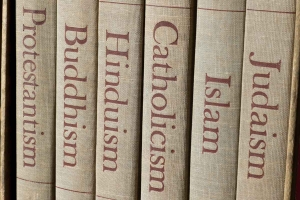Religion and Death
Religion and death – It is a sad fact that the death rate among the elderly tends to be higher in the winter, and particularly in the New Year.
In the UK there are people of many different faiths and customs about how their loved ones who are dying should be treated. Equally, there are specific rituals related to how bodies should be dealt with.
While everyone should, of course, be treated with dignity and respect, it is important to observe the customs appropriate to their faith at the end of their lives.
There are, of course, often sub-divisions within the faiths, many with their own rituals and space does not permit us to cover them all, but the NHS has a very good guide to them all here.
This blog covers religion and death the main faiths of people from various ethnicities living in the UK.
Caribbean
By and large people from the Caribbean are Christian and although there will be variations depending on their islands of origin, the church is a great source of support in times of illness, poverty and distress.
Generally, people prefer to die at home, but that is not always possible. Funerals tend to be big affairs. Families are usually prepared to contribute towards the cost.
Coffins are open for family and friends to view at the church.
Christians
There are many Christian denominations but the three main ones are Anglican, Free Church and Roman Catholic.
Christians believe in life after death. As death approaches some may wish prayers to be said or anointing to take place.
Roman Catholics have specific sacraments to be administered at the end of life. They are the sacrament of the sick, administered to patients and adapted according to the seriousness of the illness and can be repeated if circumstances change and the Last Rites, administered by their priest
Traditionally burial has been preferred but cremation is acceptable.
Hinduism
Hindus would prefer to die at home, and every effort should be made to make this possible. However, in hospital certain traditions need to be respected depending on the devoutness of the patient and family.
One tradition is for family to bring in money to be touched by the patient, which is then distributed to the needy. Some patients want to lie on the floor to symbolise closeness with Mother Earth or desire to give the bed to someone in greater need. Some rites that the priest or family may perform include putting a thread around the neck and wrist as a blessing, sprinkling Ganges water over the body or placing a tulsi leaf and Ganges water in the mouth.
The body should be treated with reverence and respect. The family will want to wash the body with Ganges water (which they will bring with them from the temple). They will also wrap the body in white cloth Jewellery, sacred threads or religious objects should be left on the body.. It is necessary for the eldest son to participate no matter how young he is. Adult Hindus are always cremated.
Judaism
The idea of life after death is expressed in the faith. Death has its rites. Family and friends will want to be present, as according to Jewish law and traditions, a dying person should not be alone.
Family may request a visit from their Rabbi and the patient may want to say a special prayer of confession.
At the moment of death those present may make a small tear in their clothes as a mark of grief. The family may want to wash and prepare the body for going to the mortuary and might want to remove the body from the hospital as soon as possible.
A funeral will normally take place within 24 hours of death. Orthodox Jews can only be buried, but some reformed Jews allow cremation as well as burial.
Muslim
Life and death are two realities accepted in Muslim culture. The Holy Koran says “We belong to God and to him we return”.
The patient’s family may want to help their loved one to make the transition between the two, reading out parts of the Koran.
After death, the body is as sacred as when it was alive and must be handled gently and with respect. It is preferable for close family members to be present and to position the hands and close the eyes.
If possible the body should be laid with the head pointing to the East.
Generally, Muslims believe that the body should be buried, preferably before sunset on the same day.




